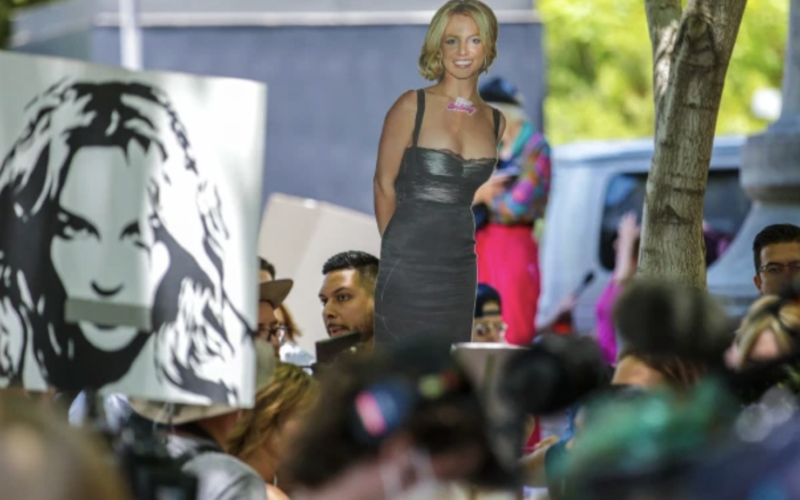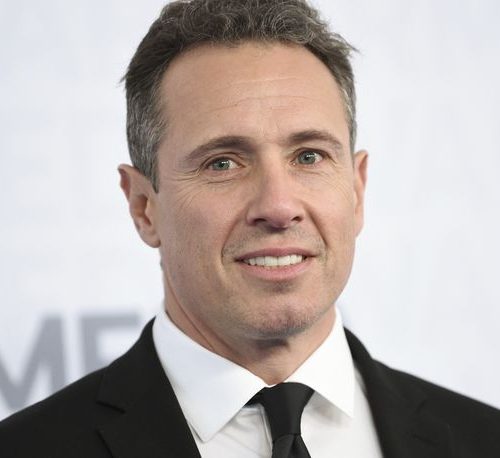BY ASHLEY CULLINS | HollywoodReporter.Com
Troy Warren for CNT
Audio of the artist’s emotional statements — in a hearing that didn’t allow recording — was posted online.
It didn’t take long for audio from Britney Spears’ June 23 conservatorship hearing to make the rounds on the internet, despite a clear and emphatic warning from the L.A. County Judge Brenda Penny that recording wasn’t allowed. Whether the person, or people, who did it will face any penalty remains to be seen, but the court has taken another action in response: It shut down its remote audio attendance program entirely.
Under California state and local court rules, no recordings of court hearings are allowed (including by members of the press) without advance permission from the judge in the form of a written order. According to the 2019 California Rules of Court, “Any violation of this rule or an order made under this rule is an unlawful interference with the proceedings of the court and may be the basis for an order terminating media coverage, a citation for contempt of court, or an order imposing monetary or other sanctions as provided by law.”
When asked what is the court’s general policy is on taking action if a proceeding is recorded without permission, L.A. County Superior Court Communications Director Ann E. Donlan said only: “Parties who publish unauthorized recordings of court proceedings in violation of a court order are subject to sanctions and other potential liability pursuant to California Code of Civil Procedure section 1209 and other applicable law.”
Penny, at the beginning of the hearing, not only reminded those listening about the policy against recording but also warned against live-tweeting and told those physically in the courtroom that they needed to use a pen and paper instead of a laptop for their notes. Still, audio of Spears testimony began circulating just hours after the hearing, including in a YouTube post that has since been taken down because of a copyright claim from the court.
The next day, the court issued an announcement that, effective Monday, the remote audio attendance program would be shut down.
“Effective June 28, the Court will no longer offer the Remote Audio Attendance Program (RAAP) to listen remotely to courtroom proceedings,” read the announcement, which also detailed the rolling back of other COVID-19 protocols. “The Court implemented this temporary program during the pandemic recognizing there may be abuses of the Court’s orders prohibiting recording, filming, and distribution of proceedings. Widespread breaches by the public in a recent court proceeding highlighted the need to return to in person, open courtroom proceedings, which is a welcome development.”
The program, which was launched in January in response to the pandemic, marked a step toward improved court access for media. Even pre-COVID, cramped court rooms and varying judicial preferences regarding the use of laptops for note-taking made covering proceedings logistically difficult. And, after the O.J. Simpson murder trial became a televised international spectacle, courts have long been reticent to give even bona fide news outlets permission to record.
Amid the pandemic, federal courts have also dabbled in allowing access to hearings via audio and video feeds (though the 9th District U.S. Court of Appeals has been routinely streaming hearings for quite some time). There’s currently a bill in the U.S. Senate, dubbed the Sunshine in the Courtroom Act of 2021, that would give federal judges broad discretion to allow courtroom proceedings to be televised, or otherwise recorded. The bipartisan bill is opposed by the Judicial Conference, the policymaking arm for U.S. courts, which argues cameras have an intimidating and negative affect on litigants, witnesses and jurors.
During the June 23 hearing, as you can hear in the illicit audio, the performer said her conservatorship was “abusive” and listed a series of complaints including that she didn’t have any control over the medication she’s prescribed and couldn’t get someone to make a doctor’s appointment to remove her IUD. On Tuesday, her father, Jamie Spears, filed two documents in response to those claims. One is a petition asking Penny to “order an investigation into the issues and claims” she raised. The other is a response to a pending motion that would make Jodi Montgomery’s temporary role as conservator of Spears’ person a permanent one, which requests an evidentiary hearing. Jamie Spears notes that he hasn’t had any input into his daughter’s medical care since 2019 and challenges the contention that she doesn’t have capacity to consent to medical treatment. He notes Spears’ court-appointed attorney Samuel D. Ingham III stated in the petition her incapacity was determined by a court order in October 2014, but Jamie contends “there was no such finding, and there is no such order.” (Read that filing below.)
On Wednesday, Penny signed an order that reflects her decision back in November to install corporate fiduciary Bessemer Trust as a co-conservator of the estate alongside Jamie Spears.
The next hearing is currently set for July 14. Unless there’s a reversal of court policy, it will not be streamed. The Judicial Council, which is California’s policymaking arm, says it’s a local court decision and “we’re not aware of any movement toward consistent audio or video streams of court proceedings.”
In Other NEWS



































